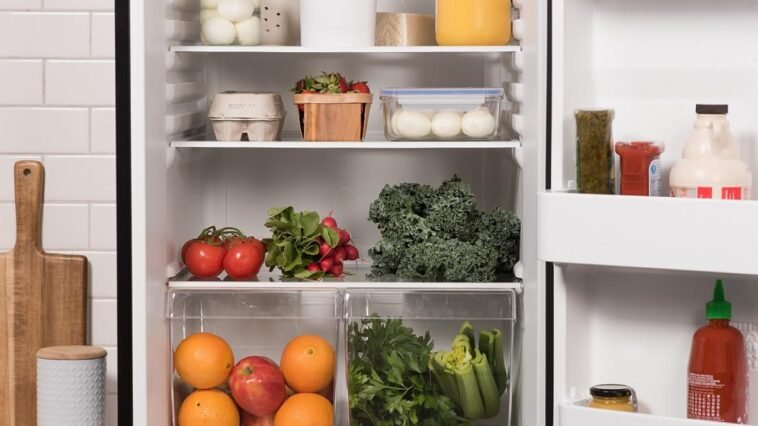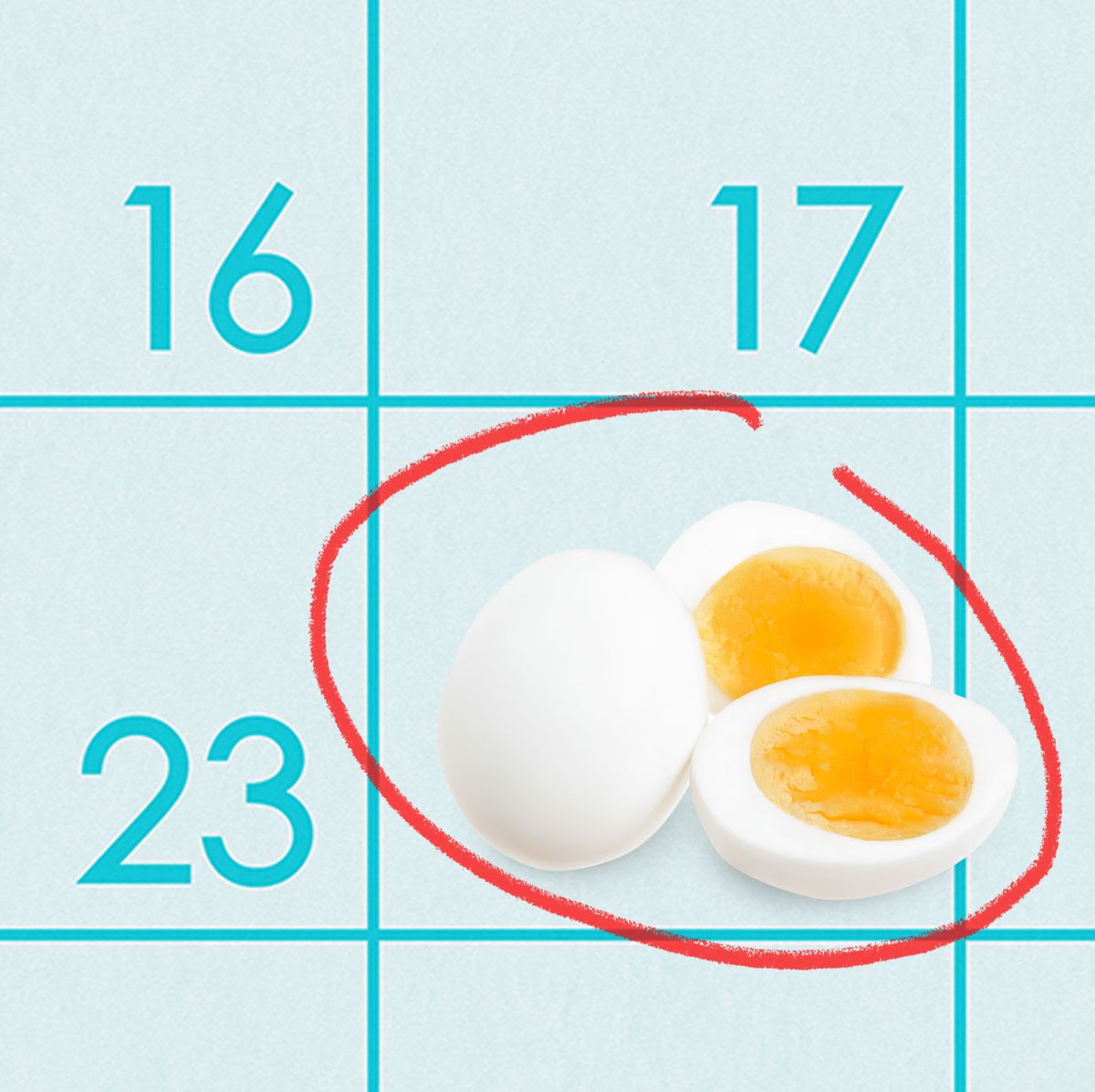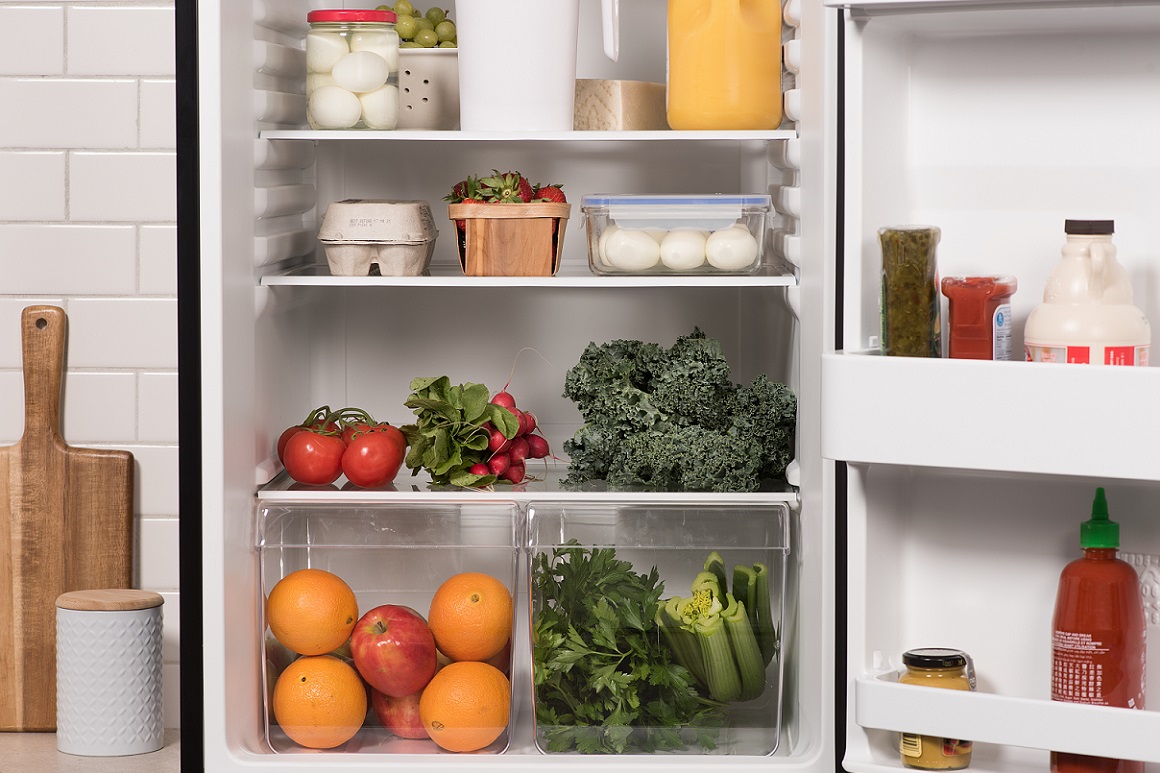Hard-boiled eggs last up to one week in the fridge. Store them in their shells for the best freshness.

Hard-boiled eggs are a versatile and nutritious food. Knowing how to store them properly ensures they stay fresh and safe to eat. Place your hard-boiled eggs in the refrigerator as soon as they cool. This helps maintain their quality and prevents bacteria growth.
Keep them in their shells to protect them from drying out and absorbing fridge odors. Label the container with the boiling date to track its freshness. If you peel the eggs, store them in an airtight container with a damp paper towel. This simple step keeps them moist and ready for quick meals or snacks. Proper storage extends their shelf life and maintains their flavor.
Shelf Life Of Hard-boiled Eggs
Hard-boiled eggs are a nutritious and convenient snack. But how long do they last in the fridge? Knowing their shelf life is crucial for safety and taste.
Optimal Duration
Hard-boiled eggs can last up to one week in the fridge. This timeframe ensures they remain safe to eat and retain their texture.
To extend their freshness, store them in a covered container. This prevents the eggs from absorbing odors from other foods.
Use the table below for quick reference on storage times:
| Storage Method | Duration |
|---|---|
| Refrigerated (in shell) | Up to 7 days |
| Refrigerated (peeled) | Up to 5 days |
Signs Of Spoilage
Identifying spoiled hard-boiled eggs is essential. Look for these signs:
- Smell: A sour or sulfur-like odor indicates spoilage.
- Texture: Slimy or chalky texture means the egg has gone bad.
- Appearance: Mold or discoloration on the shell or egg white.
Trust your senses. If something seems off, it’s best to discard the egg.
Proper Storage Techniques
Knowing the proper storage techniques for hard-boiled eggs is essential. It helps keep them fresh and safe to eat. Let’s explore some key aspects like ideal temperature and best containers.
Ideal Temperature
The ideal temperature for storing hard-boiled eggs is below 40°F (4°C). This keeps the eggs fresh and safe from bacteria. Use a reliable fridge thermometer to monitor the temperature.
Best Containers
Storing hard-boiled eggs in the right containers is important. Use airtight containers to prevent odors from seeping in. Glass or plastic containers with tight seals work best.
Here’s a simple table to help you choose the best containers:
| Container Type | Pros | Cons |
|---|---|---|
| Glass | Non-porous, odor-resistant | Heavier, breakable |
| Plastic | Lightweight, durable | May retain odors |
Use these tips to keep your hard-boiled eggs fresh:
- Label containers with the date of boiling
- Store eggs in the main fridge compartment
- Avoid placing eggs on the fridge door
Peeling And Storing
Peeling and Storing hard-boiled eggs is an essential step. Proper peeling and storing can extend their shelf life. It also keeps them fresh and safe to eat. Below are some tips to help you.
Peeling Methods
Peeling hard-boiled eggs can be tricky. Here are some methods to make it easier:
- Ice Bath Method: Place boiled eggs in an ice bath for 10 minutes. The cold water helps to separate the shell from the egg.
- Rolling Method: Gently roll the egg on a flat surface. This loosens the shell and makes peeling easier.
- Spoon Method: After cracking the shell, slide a spoon between the egg and the shell. This helps lift the shell away smoothly.
Storage Tips
Proper storage is crucial for keeping hard-boiled eggs fresh. Follow these tips:
- Store peeled eggs in an airtight container.
- Keep the container in the fridge at 40°F (4°C) or below.
- Label the container with the date of boiling.
- Consume within one week for best quality.
| Storage Method | Duration |
|---|---|
| Unpeeled in the fridge | Up to 7 days |
| Peeled in the fridge | Up to 5 days |

Credit: www.goodhousekeeping.com
Detecting Freshness
Knowing how to detect the freshness of hard-boiled eggs is crucial. It ensures you eat safe and tasty eggs. Here’s a simple guide for detecting freshness using visual inspection and smell test.
Visual Inspection
Start with a visual inspection. Look for any changes in the egg’s appearance. A fresh hard-boiled egg should have a smooth, white, and firm texture. If the egg has cracks, discoloration, or a slimy shell, it’s likely not fresh.
| Fresh Egg | Not Fresh Egg |
|---|---|
| White and firm texture | Cracks or slimy shell |
| Consistent color | Discoloration |
Smell Test
The smell test is another effective method. A fresh egg will have a neutral smell. If the egg has any sulfuric or unpleasant odor, it is no longer good to eat.
- Fresh egg: Neutral smell
- Bad egg: Sulfuric or unpleasant odor
Always trust your nose. If it smells off, discard the egg immediately.
Extending Shelf Life
Hard-boiled eggs are a great snack. But how long do they last? Extending their shelf life is key. Here are some tips on storage to keep them fresh.
Refrigeration Tips
Always store hard-boiled eggs in the fridge. Keep them in a covered container. This helps prevent them from absorbing odors.
It’s best to leave the shells on. This helps keep the eggs fresh longer. Peeled eggs should be eaten within two days.
Use a refrigerator thermometer. Make sure the temperature is below 40°F (4°C). This keeps your eggs safe from bacteria.
Freezing Options
Can you freeze hard-boiled eggs? Yes, but only the yolks. The whites become rubbery and unappetizing.
To freeze yolks, follow these steps:
- Separate yolks from whites.
- Place yolks in a freezer-safe container.
- Label the container with the date.
- Store in the freezer for up to three months.
Thaw yolks in the fridge before using. Use them in salads or as a topping.
| Storage Method | Duration |
|---|---|
| In the fridge with shell | Up to one week |
| Peeled in the fridge | Up to two days |
| Yolks in the freezer | Up to three months |
Following these tips helps keep your hard-boiled eggs fresh. Enjoy your eggs longer with these simple steps!
:max_bytes(150000):strip_icc()/Simply-Recipes-Hard-Boiled-Eggs-LEAD-03-42506773297f4a15920c46628d534d67.jpg)
Credit: www.simplyrecipes.com
Common Mistakes
Hard-boiled eggs are a great snack. But they can spoil if stored wrongly. Many people make mistakes that shorten their shelf life. Learn how to avoid these common pitfalls.
Improper Storage
Proper storage keeps eggs fresh longer. One common mistake is not using an airtight container. Eggs absorb odors from the fridge. An airtight container prevents this.
Another error is leaving eggs in the door. The door’s temperature fluctuates. Instead, place eggs on a shelf. This keeps the temperature stable.
| Improper Storage | Correct Storage |
|---|---|
| Not using an airtight container | Use an airtight container |
| Storing eggs in the fridge door | Store eggs on a fridge shelf |
Ignoring Signs
Look for signs of spoilage. Bad eggs have an off smell. If an egg smells bad, throw it out.
The texture is also a clue. Fresh eggs have a firm white and yolk. Spoiled eggs may be slimy or watery. If the texture changes, don’t eat the egg.
- Off smell means the egg is bad.
- Firm texture means the egg is fresh.
- Watery or slimy texture means the egg is spoiled.
Avoid these common mistakes. Store eggs properly and check for signs of spoilage. This will keep your hard-boiled eggs fresh longer.
Nutritional Value
Hard-boiled eggs are a nutritious snack that offers numerous health benefits. They are a great source of essential nutrients and can be easily stored in the fridge. Understanding the nutritional value of hard-boiled eggs helps you make informed dietary choices.
Nutrient Retention
Hard-boiled eggs retain most of their nutrients after cooking. Here’s a breakdown of the main nutrients found in one large hard-boiled egg:
| Nutrient | Amount |
|---|---|
| Calories | 78 kcal |
| Protein | 6.3 grams |
| Fat | 5.3 grams |
| Carbohydrates | 0.6 grams |
| Vitamin A | 6% of the RDI |
| Vitamin B12 | 9% of the RDI |
| Vitamin D | 15% of the RDI |
Health Benefits
Hard-boiled eggs offer numerous health benefits:
- High in Protein: Helps build and repair muscles.
- Rich in Vitamins: Supports immune function and skin health.
- Good Source of Choline: Essential for brain health.
- Low in Calories: Aids in weight management.
Including hard-boiled eggs in your diet can improve overall health. They are easy to prepare and store, making them a convenient option for busy lifestyles.

Credit: www.eggs.ca
Frequently Asked Questions
Can You Eat Hard-boiled Eggs After 10 Days?
Yes, you can eat hard-boiled eggs after 10 days if stored in the refrigerator. Ensure they are still fresh.
Is It Better to Store Hard-boiled Eggs Peeled or Unpeeled?
Store hard-boiled eggs unpeeled to keep them fresh longer. Unpeeled eggs retain moisture and prevent contamination.
How to Tell if Hard-boiled Eggs Are Bad?
Check for a sulfur smell, slimy texture, or discoloration. Float the egg in water; bad ones float.
How Do You Store Boiled Eggs for Longer?
Store boiled eggs in the refrigerator within two hours. Keep them in an airtight container. Avoid peeling until ready to eat. Consume within one week for best quality.
Conclusion
Proper storage of hard-boiled eggs is essential for maintaining their freshness. Keeping them in the fridge ensures they last up to a week. Always store them in a covered container. Check for signs of spoilage before consuming. By following these tips, you can enjoy safe and delicious hard-boiled eggs anytime.


GIPHY App Key not set. Please check settings